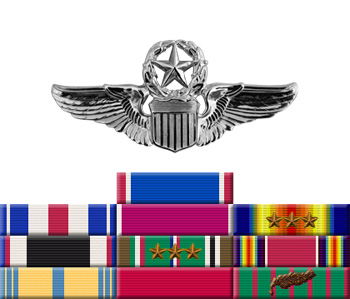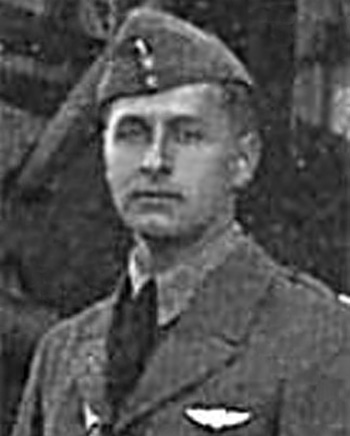
|
Everett R. Cook |
 |
|||
| Rank, Service | ||||
Brigadier General O-7, U.S. Air Force |
||||
| Veteran of: | ||||
|
||||
| Tribute: | ||||
Everett Cook was born on December 13, 1894, in Indianapolis, Indiana. He enlisted in the Aviation Section of the U.S. Army Signal Corps on May 5, 1917, and began flying training on June 4, 1917. Cook graduated from the School of Military Aeronautics at Champaign, Illinois, in August 1917, and completed flight training at Chanute Field, Illinois, and received his commission as a 1st Lt on December 15, 1917. He then went to Issoudun, France, for advanced training before serving with the 1st Observation Group from February to April 1918. His next assignment was with the 91st Aero Squadron in France and then on occupation duty in Germany from April 1918 to April 1919. During this time he was credited with the destruction of 5 enemy aircraft in aerial combat, and he also served as commander of the 91st Aero Squadron from August 1918 to April 1919. Capt Cook then served as a staff officer with Headquarters U.S. Army Air Service in Washington, D.C., from May 1919 until he left active duty on August 31, 1919. During World War II, he returned to active duty with a commission as a LtCol on September 1, 1942, and he served as Deputy Chief of Staff of 8th Air Force from September 1942 to February 1943. Col Cook then served as Deputy Chief of Staff of Northwest African Air Forces from February to August 1943, followed by service as Deputy Chief of Staff of 12th Air Force from September to December 1943. He was Deputy Chief of Staff of U.S. Strategic Air Forces in Europe from January to March 1944, and then served on the staff of Headquarters U.S. Army Air Forces in Washington, D.C., from March 1944 until he left active duty on July 24, 1944. Gen Cook joined the Air Force Reserve on July 29, 1946, and retired on April 1, 1953. Everett Cook died on January 21, 1974. |
||||
|
||||

